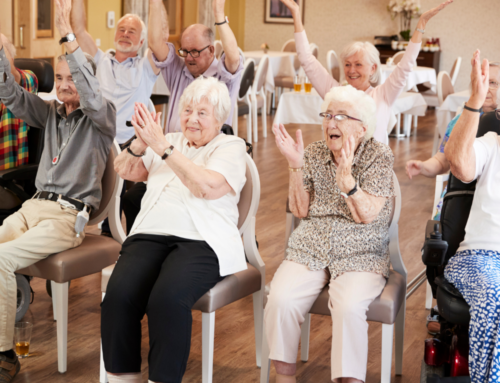Share This Story!
What Is Paper Thin Skin?
As a person ages, the skin not only changes but may have different needs in terms of a skincare routine. But more importantly, some behaviors can impact the look and feel of the skin. A common skin issue for the elderly is having thin skin. However, taking a proactive approach to skincare and certain behaviors in younger years can help seniors avoid thin skin later in life.
Mind the UV exposure
Ideally, people of all ages should be using an SPF moisturizer regardless of whether the sun is shining or the day is overcast. UV exposure is one of the biggest contributors to thin skin in seniors. Along with being the culprit behind wrinkles, sagging, and age spots, the sun can also cause the most frequently exposed parts of the body such as the hands, arms, and face to have thinner skin. Additionally, excessive UV exposure, such as sunbathing or using tanning beds, can accelerate skin damage.
Be mindful of lifestyle choices
In the current millennia, everyone knows that smoking or using any kind of tobacco product is a bad habit. But along with potentially increasing a person’s risk of contracting cancer and other chronic diseases, using tobacco can also prematurely age the skin. Along the same lines, excessive drinking can also speed the aging process for a person’s skin. Other factors include poor diet and being sedentary, two other lifestyle factors that can be common problems for seniors.
Moisturize, moisturize, moisturize
The best way to avoid developing thin skin later in life is to be mindful of behaviors in younger years. But for seniors struggling with thin skin, some actions can be taken to help keep skin protected and to prevent cuts or tears. Keeping the skin moisturized is one of the best ways to provide protection. For best results, opt for thicker creams that contain moisture-rich ingredients like ceramides, hyaluronic acid.
Invest in a good SPF
Along with minimizing sun exposure, also be sure to use SPF before venturing outside. While a traditional broad-spectrum sunscreen with an SPF of 30 or better works, seniors can also opt for SPF-infused moisturizers for the face and body. If an individual knows that prolonged periods will be spent outside, apply the SPF at least 15 minutes before heading outdoors. Additionally, all skin not covered by clothing should have sunscreen applied. And be sure to reapply every two hours.
Consider adding retinol to skincare routines
Retinol may not work for everyone, especially people with sensitive skin. But research has suggested that retinol can help to improve the skin’s thickness. Most people can find a retinol-infused moisturizer or serum in drugstores or at beauty retailers. In some cases, a dermatologist might prescribe retinol. Keep in mind though, that retinol encourages cell turnover and can increase the skin’s sensitivity to the sun. So, seniors considering adding retinol to a daytime skincare routine should prioritize sunscreen too or opt for a nighttime retinol routine instead.
Targeting better skin and beyond
While topical solutions are available that can aid in improving thin skin, a healthy diet can also be incredibly beneficial. And since poor nutrition is a real concern for many seniors, taking a holistic approach that incorporates proteins, fresh fruits, and vegetables and limiting sugars and refined carbohydrates can improve the skin and boost other bodily functions. Seniors concerned about reversing the impact of thin skin should speak with a physician or dermatologist.





